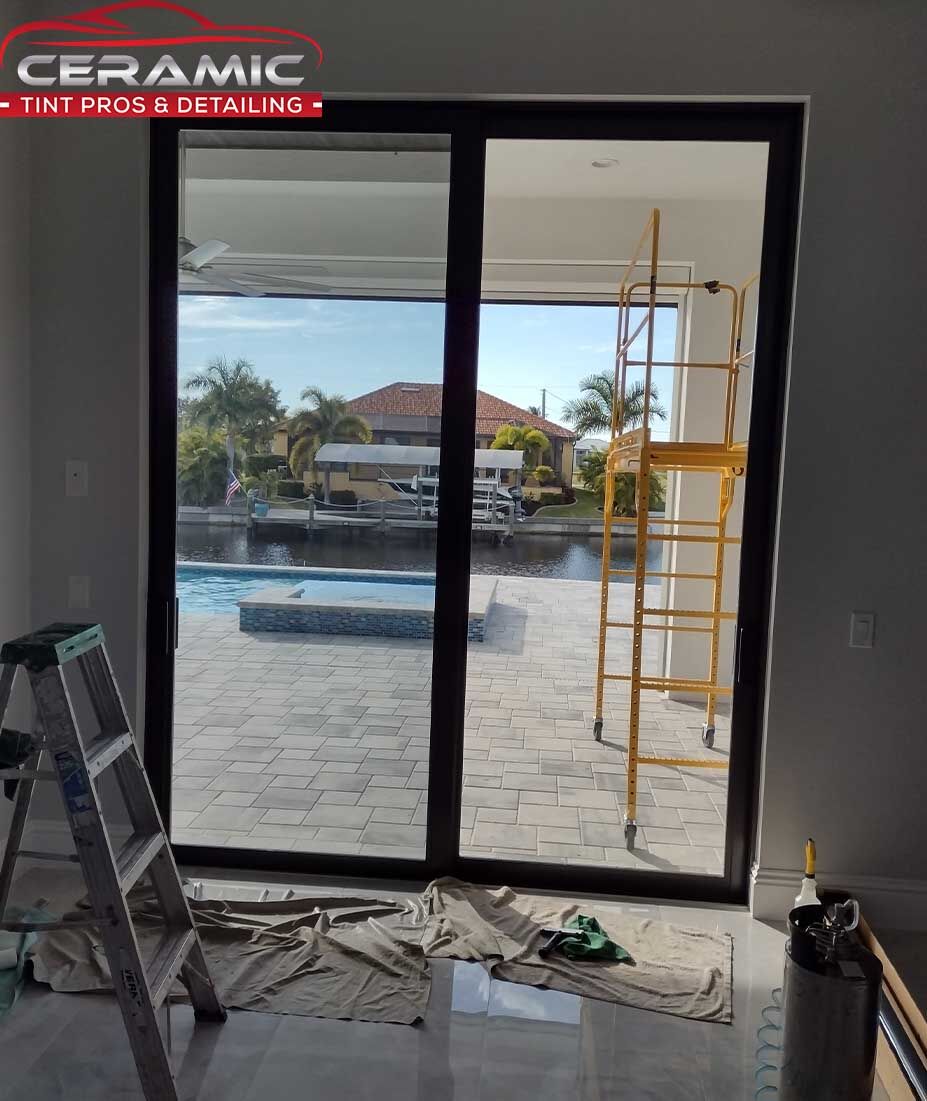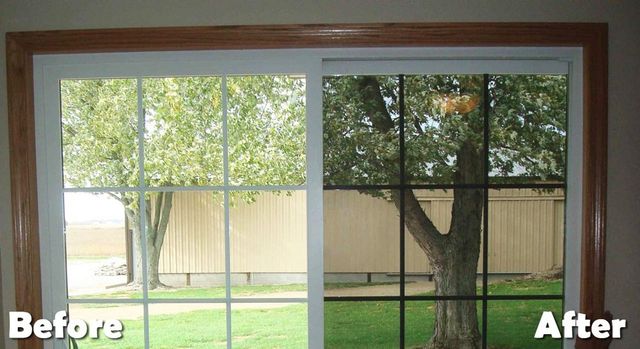Residential Window Tint: Boost Security and Add a Layer of Protection
Residential Window Tint: Boost Security and Add a Layer of Protection
Blog Article
How Residential Home Window Tinting Boosts Your Home's Power Effectiveness
Residential window tinting presents an engaging option for property owners looking for to improve power effectiveness within their space. By using specialized movies to windows, it effectively reduces warm transfer, consequently stabilizing interior temperature levels and decreasing the requirement for extreme home heating or air conditioning. This not only cuts power usage however additionally supplies a much more comfy setting by mitigating glare. Understanding the subtleties of exactly how tinting jobs and choosing the suitable kind for your home can be essential. Strangely enough, what aspects should one think about prior to making this financial investment?
Understanding Window Tinting
Recognizing home window tinting is important for property owners looking for to improve both convenience and power efficiency in their space. Residential Window Tint. Window tinting entails the application of a thin movie to the interior or exterior surface of glass windows. This movie can significantly regulate the amount of sunshine and warmth that enters a home, therefore affecting indoor environment conditions
There are various types of home window tinting films available, each with distinct residential or commercial properties. For circumstances, colored films soak up solar energy, while reflective movies disperse it far from the glass surface area. Ceramic movies provide an equilibrium of visibility and warmth denial, making them a prominent option among home owners. The efficiency of home window tinting is usually gauged by its Visible Light Transmission (VLT) portion, which indicates how much light can pass with the movie.
Benefits of Energy Effectiveness
Home window tinting not only improves visual appeals however likewise plays a considerable duty in improving energy performance within domestic spaces. By minimizing warmth transfer with home windows, colored films create a more steady indoor environment, which can cause significant reductions in power intake for home heating and cooling. This power efficiency translates into reduced utility costs, offering homeowners with considerable long-term cost savings.

Additionally, window tinting enhances the comfort of living areas. By lessening glow and obstructing harmful UV rays, tinted home windows create an even more pleasant setting, which can lead to boosted health for owners. The protection against UV rays additionally helps preserve furniture and floor covering from fading, adding to the longevity of family things.
Just How Tinting Functions
Tinting films run via a combination of innovative products and technologies click for source designed to manage the amount of solar power getting in a home. Primarily composed of polyester, these movies typically include ceramic or metallic fragments that soak up and show warmth. This double capability allows them to substantially minimize the penetration of ultraviolet (UV) rays and infrared radiation while permitting visible light to travel through.
The effectiveness of window tinting is determined by its solar heat gain coefficient (SHGC), which shows just how much solar power is sent via the home window. Reduced SHGC values are better as they represent higher warm being rejected. Additionally, window tints can include a range of tones, permitting house owners to tailor their aesthetic preferences while boosting energy performance.
In addition, these films serve as a barrier, stopping warm loss during colder months by mirroring interior heat back right into the space. This thermal insulation impact complements the air conditioning benefits obtained throughout warmer months, adding to a well balanced indoor climate year-round. By handling solar power properly, residential window tinting not just enhances convenience however also plays an important role in decreasing power consumption and reducing energy bills.
Selecting the Right Color

There are numerous kinds of window movies readily available, consisting of colored, metalized, and ceramic. Colored movies are economical but might have limited sturdiness. Metalized movies supply far better warmth rejection but can hinder digital signals. Ceramic movies supply exceptional warm control without endangering presence and are extremely resilient, making them a popular option.
Visible light transmission (VLT) is another critical aspect, as it indicates the amount of natural her explanation light that can pass with the tinted glass. House owners must select a color with a VLT that enhances their illumination preferences while still giving sufficient glare reduction.
Additionally, assessing the solar heat gain coefficient (SHGC) can aid figure out exactly how well a color can obstruct warmth from sunlight. A lower SHGC indicates much better warmth control, ultimately boosting power performance.
Setup and Maintenance Tips
Appropriate setup and maintenance are essential elements in taking full advantage of the benefits of residential window tinting. Professionals likewise use specialized strategies and devices, which can improve the sturdiness and effectiveness of the color.
Adhering to installment, upkeep is important to lengthen the life of the window film. It is have a peek at this website recommended to wait at least 30 days before cleaning the colored home windows to enable the adhesive to heal totally.
Addressing these issues without delay can avoid additional damages and preserve power effectiveness. By adhering to these installation and maintenance suggestions, property owners can ensure their window tinting continues to offer considerable power savings and comfort for years to come.
Conclusion
In conclusion, household window tinting serves as a reliable service for enhancing power effectiveness within homes. By decreasing heat transfer and blocking hazardous UV rays, window movies contribute to reduce energy intake and boosted indoor convenience.
Window tinting includes the application of a slim film to the inside or exterior surface of glass windows. By decreasing heat transfer via windows, colored films create a much more stable interior climate, which can lead to significant decreases in power consumption for heating and cooling.The efficiency of window tinting is measured by its solar heat gain coefficient (SHGC), which shows how much solar power is sent via the home window. By managing solar power efficiently, domestic home window tinting not just enhances convenience but also plays an essential function in minimizing energy consumption and lowering utility costs.
By minimizing warmth transfer and blocking harmful UV rays, home window films add to reduce energy usage and improved interior comfort.
Report this page